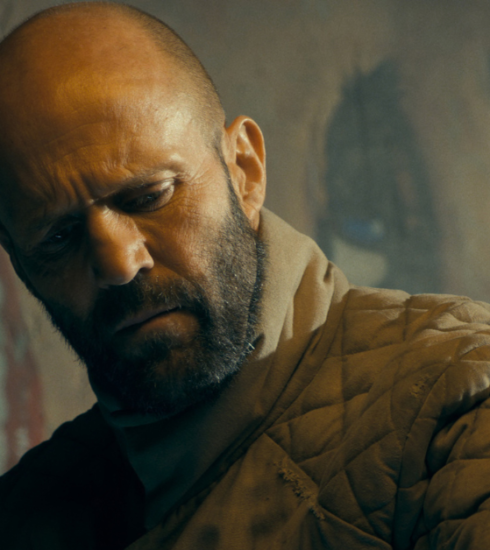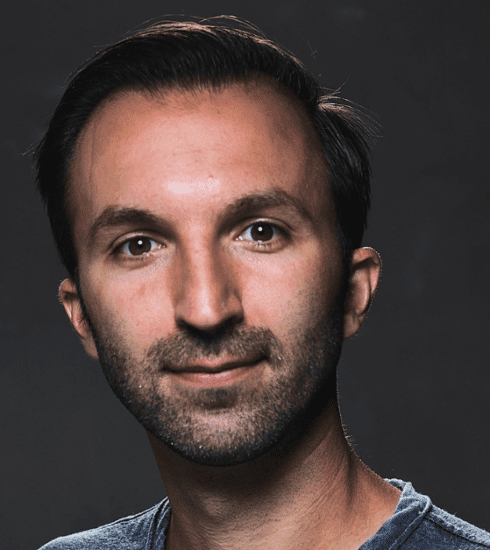Producer DeVon Franklin talks about his latest project, Flamin’ Hot.
FLAMIN’ HOT is the inspiring true story of Richard Montañez (Jesse Garcia) who as a Frito Lay janitor disrupted the food industry by channeling his Mexican American heritage to turn Flamin’ Hot Cheetos from a snack into an iconic global pop culture phenomenon.
I had the wonderful opportunity to speak with DeVon Franklin, the producer of the film. Being a storyteller and motivational speaker, he was certain this project would encourage people to have faith in their calling, discover their community, and fully understand the significance of conviction in all aspects of life. We discussed the reasons why he felt that this project was worthwhile of his backing and what he aspires the audience to gain from it.
Cox: As a producer, what was it about this project and story that made you want to put your name, money, and creativity behind it?
Franklin: You know, I was just inspired by Richard’s story. He came to meet me about seven years ago. We sat down together in my office with his wife, Judy. He told me how he started as a janitor at Frito Lay and how he came up with the idea to put chili powder on Cheetos and market it to his community in Southern California. This catapulted him into becoming one of the top executives in the company. Flamin’ Hot went on to become a billion-dollar brand. And as he was telling me his story, I was inspired by it.
In that meeting, I said, “Okay, I’m going to give you a yes, and we’re going to do this if you will allow me.” I was grateful that he and his wife, Judy, trusted me with their story.
And this was the genesis of this journey. I wanted to get involved because it moved me. I have felt like an underdog at times, and Richard certainly has been an underdog in his life and career. And he seems to persevere and succeed. I was motivated, and I felt like it would motivate and inspire others.

Cox: You are a man of faith and a storyteller. I want to talk about certain parts of the movie as they relate to that. In the opening scene, we see this young Latino entrepreneur who could have gone down a different path. It showcased the significance of how important it is for us to nurture the next generation.
Franklin: The whole idea is to give opportunity. One of the underpinnings of the film is that opportunity is not distributed equally. So, one of the things we wanted to do was articulate that, but then articulate what can happen when opportunity is given. Especially when it’s given to those from underrepresented groups. Any young person watching this film can learn a lot of lessons from Richard’s life. At the end of the day, Richard had to make a choice about who he wanted to be and what he wanted his life to be about.
He had to choose between the streets and his calling and family. He ultimately chose his calling and family, and it was a difficult choice because the streets presented familiarity. They were an ease to resources that he was accustomed to, whereas choosing his family and calling led to conflict and not being able to find a job initially. There were a lot of challenges, but in the end, it paid off. I think the movie does a great job of articulating that when opportunity is given, it’s up to each individual to make the right choice about what they want to do with it.
Cox: Speaking of second chances and opportunities, that tone is throughout the movie. In the movie, his father mentions that he might not be looking hard enough. From a faith-based perspective, what does that look like if the person isn’t looking hard enough or maybe focused on the wrong thing?
Franklin: I think that there is a temptation and tendency when we have tried a certain thing to give up if it hasn’t produced the result that we’re aspiring for. And that can be challenging, whereas faith is a conviction and then an action based upon a conviction, where there really isn’t even confirmation at times. So, in that scene, his dad was basically like, “Look, you can give yourself an excuse that there are no jobs, or you can have the conviction that there is a job for you and go find it. And I think when we talk about faith, that’s where our faith can aid us quite a bit. You know, having a conviction of who we are and then allowing our actions to represent that even in the face of our reality.
So, the test for Richard was to not allow an excuse to give him comfort to live less than what was capable and possible for him.

Cox: Speaking of conviction, throughout the movie, you see his community and family believing in him. The old gang members he rolled with told him that he couldn’t come back because he had his family. Then you see his wife and kids believing in him so much when he tries to create the dust for the Cheetos. What does this show about the type of conviction and belief your tribe should have in you as a person?
Franklin: You are getting to a really interesting point. It’s important to have a community and our tribe; however, our tribe is based on who is committed and attracted to what we’re trying to do. Just because someone may be family, or a friend doesn’t mean they’re our tribe. And so often, where I see people get really frustrated, it’s because they want the people around them to believe in them the most. It doesn’t matter if they’re close to you or not. If somebody believes in you, they’re in your tribe. And it just so happened that in Richard’s story, his tribe was his children, wife, and mentor at the factory, Clarence, and ultimately the CEO of PepsiCo. It was that tribe that he relied upon for support, opportunity, and help. And as a result, he was able to do what he did.
So, I do think that finding our tribe is important, but if somebody doesn’t catch your vision, don’t get mad at them. They’re just not part of your tribe, and that’s okay. Find those that are and those that will support you, as well as find whose tribe you’re in so that you can support someone else as well.

Cox: Last question before you go! This is an amazing story about you being in charge of your own destiny. You are the one who rewrites your story, and you want to see it go. As an entrepreneur and motivational speaker, what are your thoughts on that?
Franklin: One of the reasons I love this movie is that Richard wrote his own story. And that’s pretty much the closing line of the film. He wasn’t going to let someone else write his story. I’m a storyteller, whether I’m telling stories behind the camera, in front of the camera, on a TV set, from a pulpit, or on social media. I’m a storyteller, and I love stories.
And as it relates to my own story, you know that I just resist the temptation to write something about myself that is just not true. I have no idea of my limitations. Every day I’m looking for and trying new things. Who am I? What can I do? Instead of saying, Oh well, you’re just a producer or you’re just a preacher,” No, I’m everything, and every day I’m expanding the boundaries of what’s capable and possible for me because I’m writing my story.
And I think when people see this film, I want them to be motivated to write their story. What’s the story you want to tell with your life when it’s all said and done? What do you want your story to have been like? Whatever that is, start writing it now.






